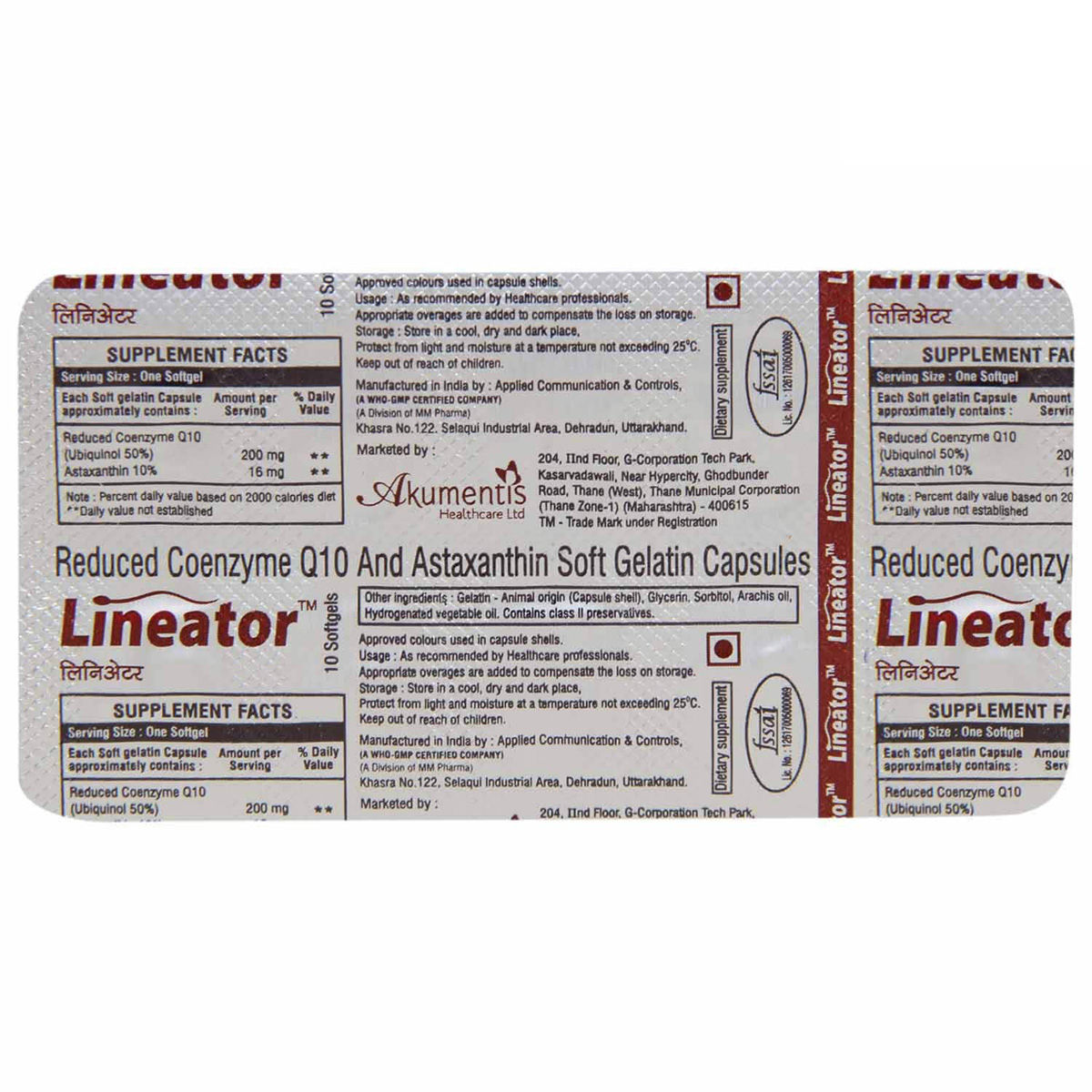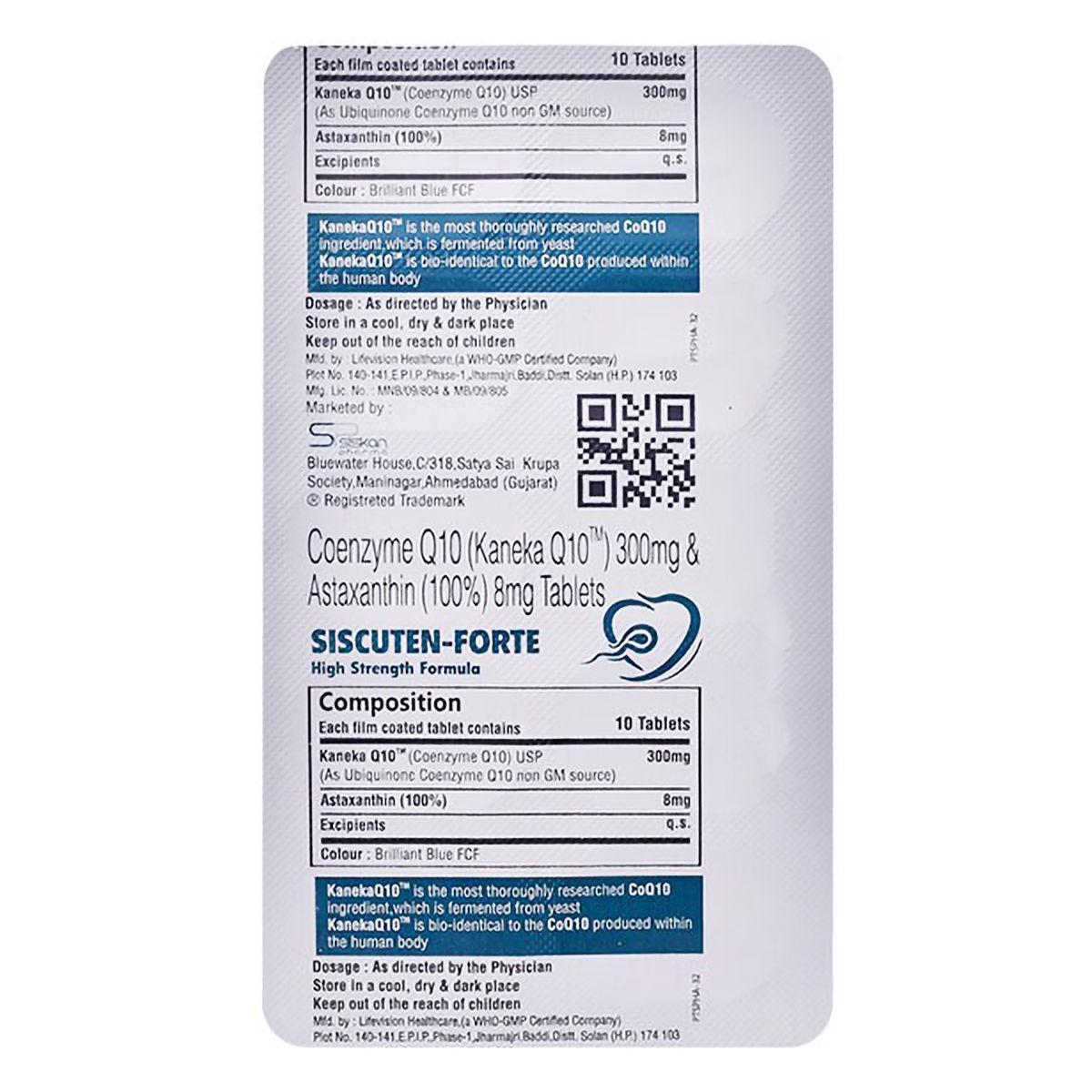Astaxanthin
About Astaxanthin
Astaxanthin is used to treat Alzheimer's, Parkinson's diseases, stroke, high cholesterol levels, liver diseases, age-related macular degeneration (vision loss) and prevent cancer. Astaxanthin is also used to improve exercise performance and treat metabolic syndrome that leads to various conditions like heart disease, stroke, and diabetes.
Astaxanthin contains 'Astaxanthin' that belongs to the class of 'Carotenoids'. Astaxanthin is a reddish pigment with antioxidant, anti-inflammatory, and antineoplastic (cancer-treating) properties. Astaxanthin works by protecting the cells against free radicals or toxins in the body due to pollution, smoking, ultraviolet rays, etc. It is also known to improve immune system functions and help in the rejuvenation of skin cells.
Your doctor will decide the dose and duration based on your medical condition. Astaxanthin is likely safe to consume. Common side effects include stomach pain in high doses, increased bowel movements, and red stool colour. These side effects are not familiar to everyone and vary individually. If you notice any side effects that are not manageable, please consult your doctor.
Let your doctor know if you use any other medications, including vitamins, before starting Astaxanthin. Please tell your doctor if you are allergic to Astaxanthin or other medicines. Inform your doctor beforehand if you have a history of liver, heart or kidney diseases. It is essential to let your doctor know if you are pregnant, planning to conceive or a breastfeeding mother.
Uses of Astaxanthin
Medicinal Benefits
Astaxanthin is associated with several health benefits, such as heart problems and skin problems, as well as benefits for weak immunity. It protects the cells against free radicals or toxins in the body due to pollution, smoking, ultraviolet rays, etc. Astaxanthin also improves sleep when taken as a supplement. It is also used for carpal tunnel syndrome (pain, numbness, tingling in hand and arm), indigestion, male infertility, symptoms of menopause, and rheumatoid arthritis.
Directions for Use
Storage
Side Effects of Astaxanthin
Increased bowel movements
Red stool colour
Stomach pain
Drug Warnings
Let your doctor know if you use any other medicines or supplements before using Astaxanthin. Brief your medical history to the doctor if you have any heart, liver or kidney diseases before starting Astaxanthin. Caution is recommended in the case of auto-immune system disorders. Please consult your doctor know if you are pregnant, planning to conceive or a breastfeeding mother. Avoid consuming alcohol while being treated with Astaxanthin to avoid any side effects. Store Astaxanthin at a temperature not exceeding 25°C- 30°C away from direct sunlight.
Drug Interactions
Drug-Drug Interaction: Astaxanthin may interact with blood-thinning agents (aspirin, warfarin), pain killers (like ibuprofen, naproxen) and calcium.
Drug-Food Interaction: Astaxanthin may interact with calcium or calcium-containing food (dairy items), carotenoid-containing food (like a carrot), hormonal herb supplements and saw palmetto.
Drug-Disease Interaction: Before using Astaxanthin, let your doctor know if you have any heart disease, liver disease, kidney disease, auto-immune conditions, bleeding disorder, low blood pressure, and diabetes.
Drug-Drug Interactions Checker List:
Safety Advice

Alcohol
cautionThere is limited data on how Astaxanthin affects alcohol consumption. It is advised to limit alcohol consumption while taking Astaxanthin.

Pregnancy
cautionIt is not known how Astaxanthin affects pregnancy. Please consult your doctor before taking Astaxanthin if you are pregnant or planning to conceive.

Breast Feeding
cautionIt is not known if Astaxanthin is excreted into the breast milk. Please consult your doctor before taking Astaxanthin if you are a breastfeeding mother.

Driving
safeAstaxanthin is safe to use. However, do not drive if you experience any symptoms that affect your ability to drive or operate machinery.

Liver
cautionPlease consult your doctor before using Astaxanthin if you suffer from any liver impairment/liver disease.

Kidney
cautionPlease consult your doctor before using Astaxanthin if you suffer from any kidney impairment/kidney disease.

Children
consult your doctorThe dose may have to be adjusted by your doctor depending upon the condition of the children's disease and age.
Habit Forming
Diet & Lifestyle Advise
Maintain proper weight by following a healthy diet.
Exercise regularly as it helps in less cognitive decline and brain volume loss.
Avoid smoking and alcohol consumption.
Try to avoid stress by practising meditation or yoga.
Include fruits and vegetables in your diet as they contain antioxidants.
Eat nutritious food as it helps in cognitive stimulation.
Limit foods with high cholesterol and saturated fats.
Cut down on sugar, salt and processed foods.
Drink plenty of water.
Follow a healthy lifestyle as it helps in improving overall health and possibly protects the brain.
Patients Concern
Disease/Condition Glossary
Oxidative stress: It is the condition which occurs when there is an accumulation of too much of a harmful substance called 'free radicals, which causes oxidative stress leading to inflammation, cancer, heart diseases, arthritis, stroke, immune deficiency, and other neurodegenerative diseases.
FAQs
Astaxanthin is used to treat Alzheimer's, Parkinson's diseases, stroke, high cholesterol levels, liver diseases, age-related macular degeneration (vision loss) and prevent cancer.
Astaxanthin contains 'Astaxanthin', an antioxidant that protects the body's cells against harmful free radicals or toxins in the body due to pollution, smoking, ultraviolet rays, etc.
Astaxanthin should be used with caution in the medical history of liver, heart or kidney diseases. Please let your doctor know if you have any other medical problems before starting Astaxanthin. Caution is recommended in the case of auto-immune system disorders.
It is advised to take Astaxanthin with food to avoid any stomach upset. Please consult your doctor for more information.
Store Astaxanthin in a dry place away from direct sunlight. Store it at a room temperature ranging from 25°C- 30°C. Do not store in the freezer.








